Tag: AI Entertainment and Media
-
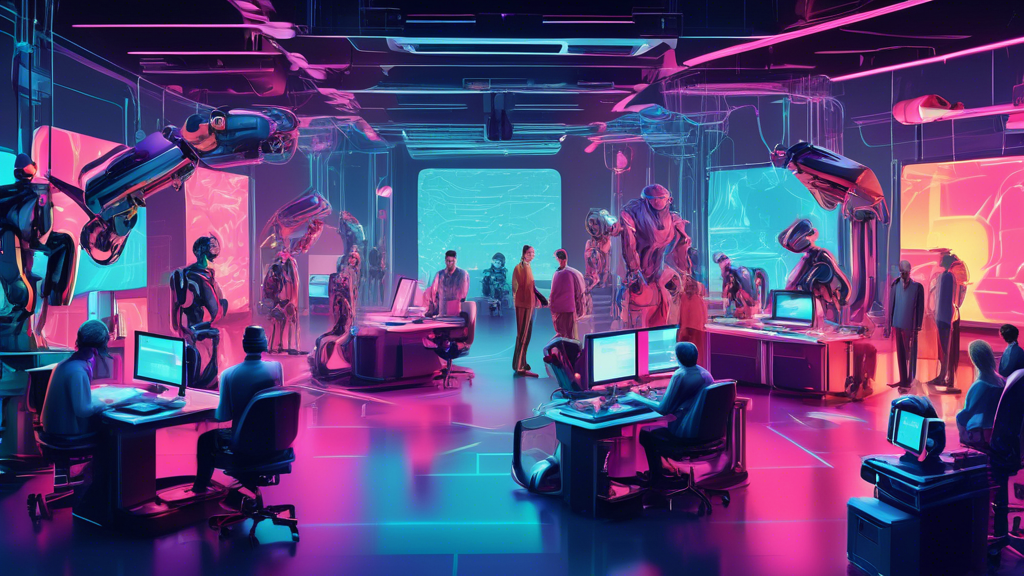
Innovations in Feature Film through Generative AI
Generative AI represents a significant leap forward in the world of feature films, offering tools and capabilities that were once the realm of science fiction. Its impact is already being felt in various stages of film production, enhancing creativity, efficiency, and viewer engagement. As filmmakers continue to explore and integrate these technologies, the landscape of…
-
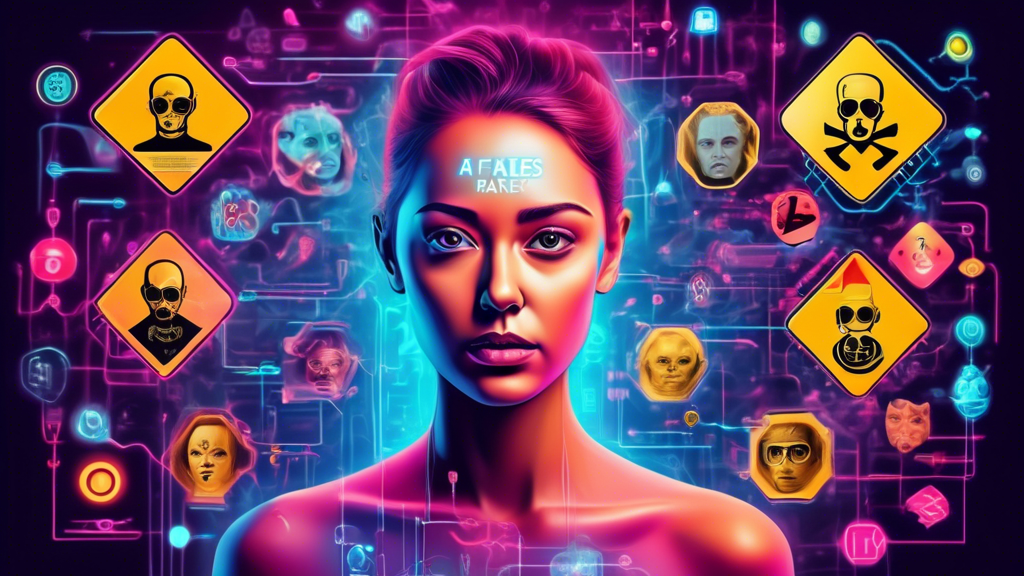
Deep Fakes and AI: Understanding the Risks
Deep fakes, as a product of AI advancements, represent a double-edged sword. While they offer intriguing possibilities, the associated risks cannot be overlooked. By understanding these risks and implementing comprehensive strategies to combat them, we can harness the benefits of AI while safeguarding societal values and individual rights.
-
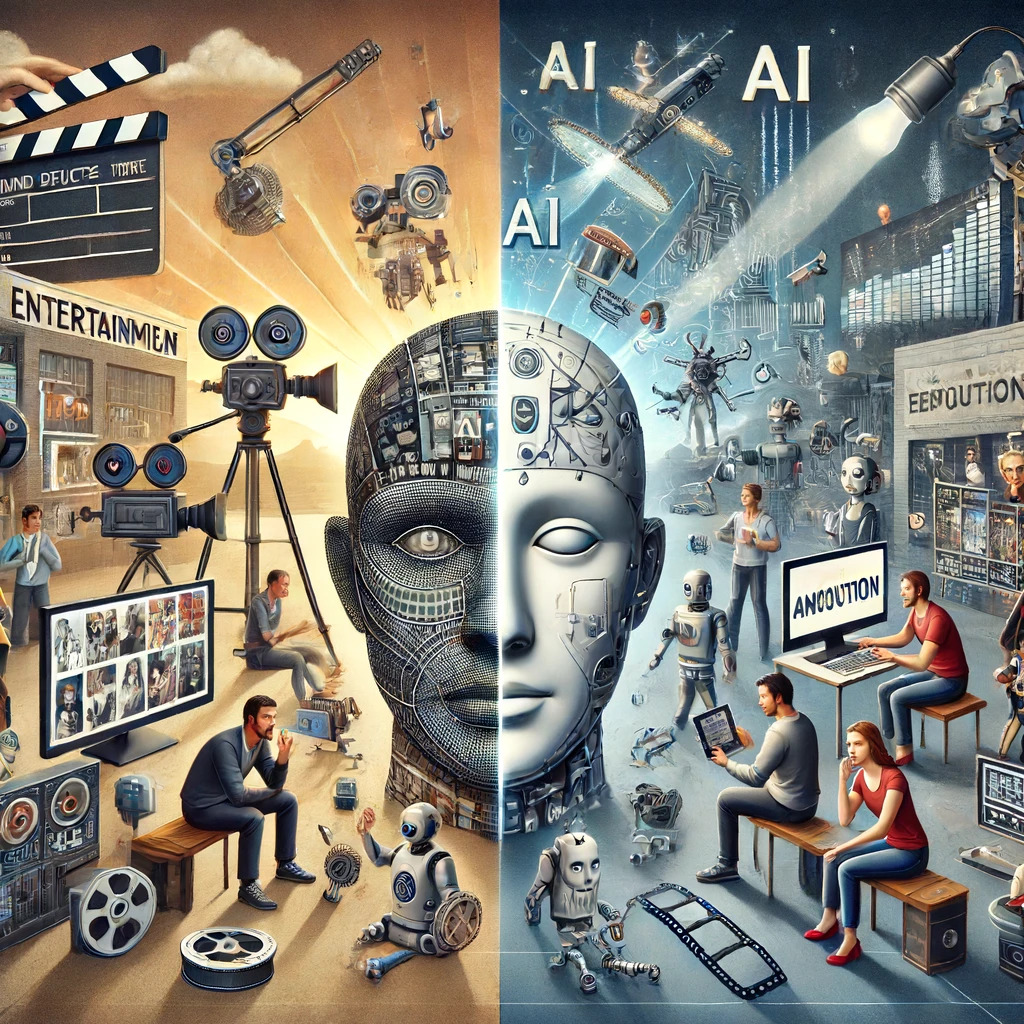
Mixed Reactions to AI in Entertainment: An In-Depth Analysis
The use of generative AI in entertainment remains a contentious issue, with a clear division in consumer sentiment. While familiarity with AI tools tends to increase acceptance, there is still significant skepticism that studios must navigate carefully. By focusing on transparent communication, selective AI integration, and ongoing consumer engagement, the entertainment industry can better align…
-
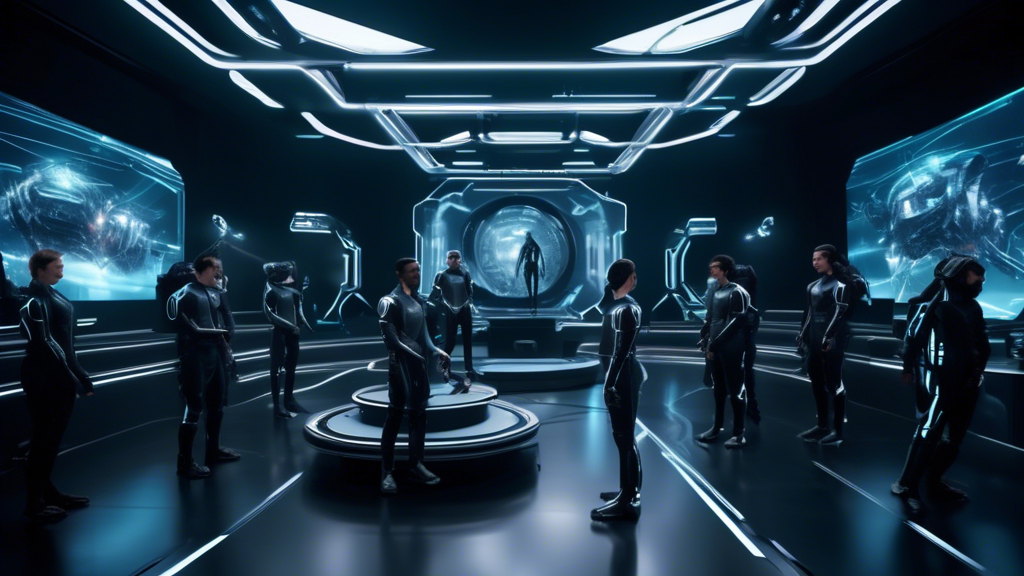
AI’s Influence on Virtual Production Techniques
AI’s influence on virtual production techniques is revolutionizing the entertainment industry, offering new tools and methods that enhance creativity while streamlining the production process. As AI continues to develop, its role in virtual production is set to expand, opening up a vast world of possibilities for filmmakers and content creators. The marriage of AI and…
-
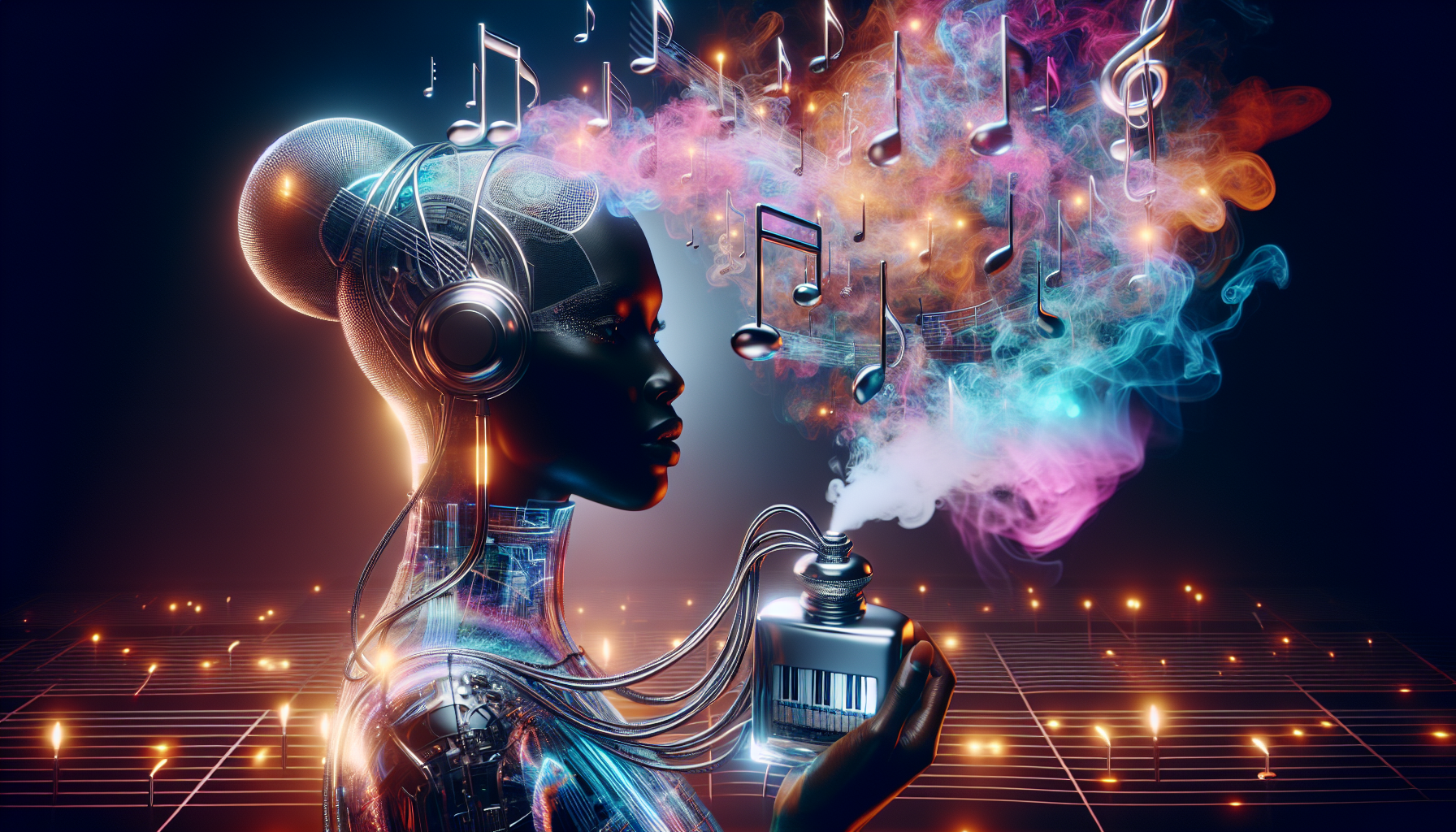
Aroma Musical Innovation: Scent and Sound in Harmony
As technology continues to advance, so will the possibilities for aroma musical innovations. Emerging technologies, such as more sophisticated scent diffusers and AI-driven sound design, promise to push the boundaries of what we can achieve. Already, case studies have shown the success of these innovations, but the future holds even more potential. With continuous research…
-
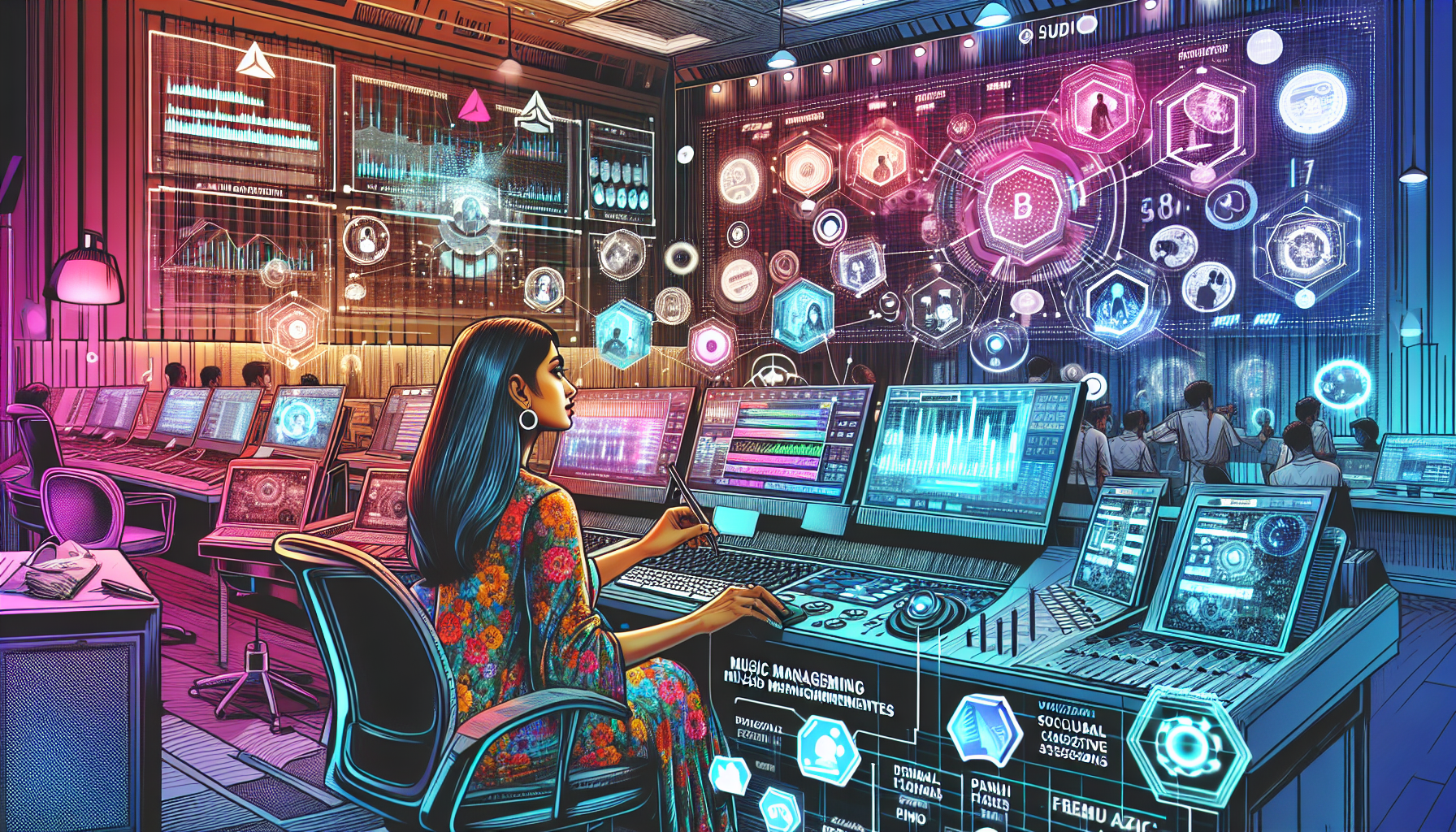
Revolutionizing the Industry: Innovative Music Management Strategies
The landscape of music management has evolved considerably, shaped by technological advancements and fresh strategic approaches. Understanding and implementing innovative music management practices have proven to be of paramount importance for both emerging and established artists. These new methodologies allow for more effective and personalized engagement with fans, streamlined distribution processes, and ultimately, greater success…
-
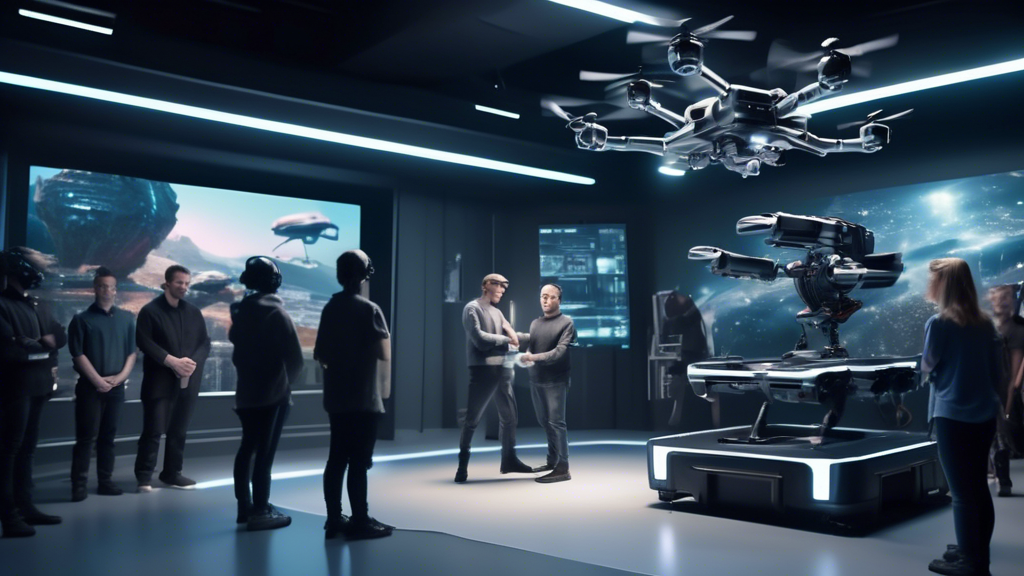
Innovative Applications of AI in Hollywood Production
The integration of AI in Hollywood production is not just a fleeting trend but a profound shift that is here to stay. By automating mundane tasks, providing valuable insights, and enhancing creative capabilities, AI is helping filmmakers push the boundaries of what is possible. As AI technology continues to evolve, its applications in film production…
-
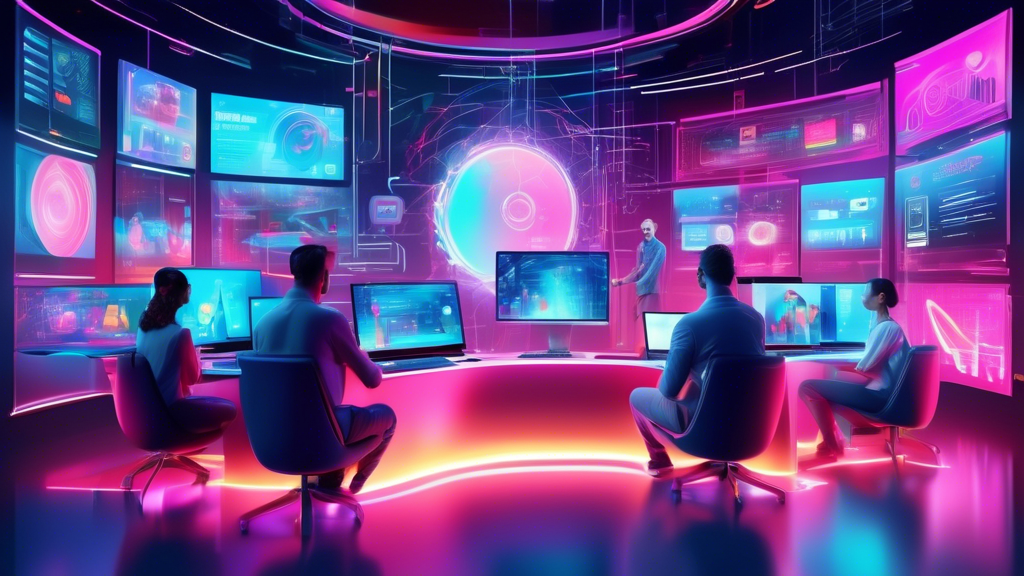
The Role of AI in Modern Advertising Strategies
The integration of AI in modern advertising strategies is transforming the landscape, making campaigns more personalized, efficient, and data-driven. From advanced targeting to real-time optimization and enhanced customer interactions, AI offers tools that elevate the effectiveness and reach of advertising efforts. However, it is crucial for businesses to address the ethical considerations associated with AI…
-
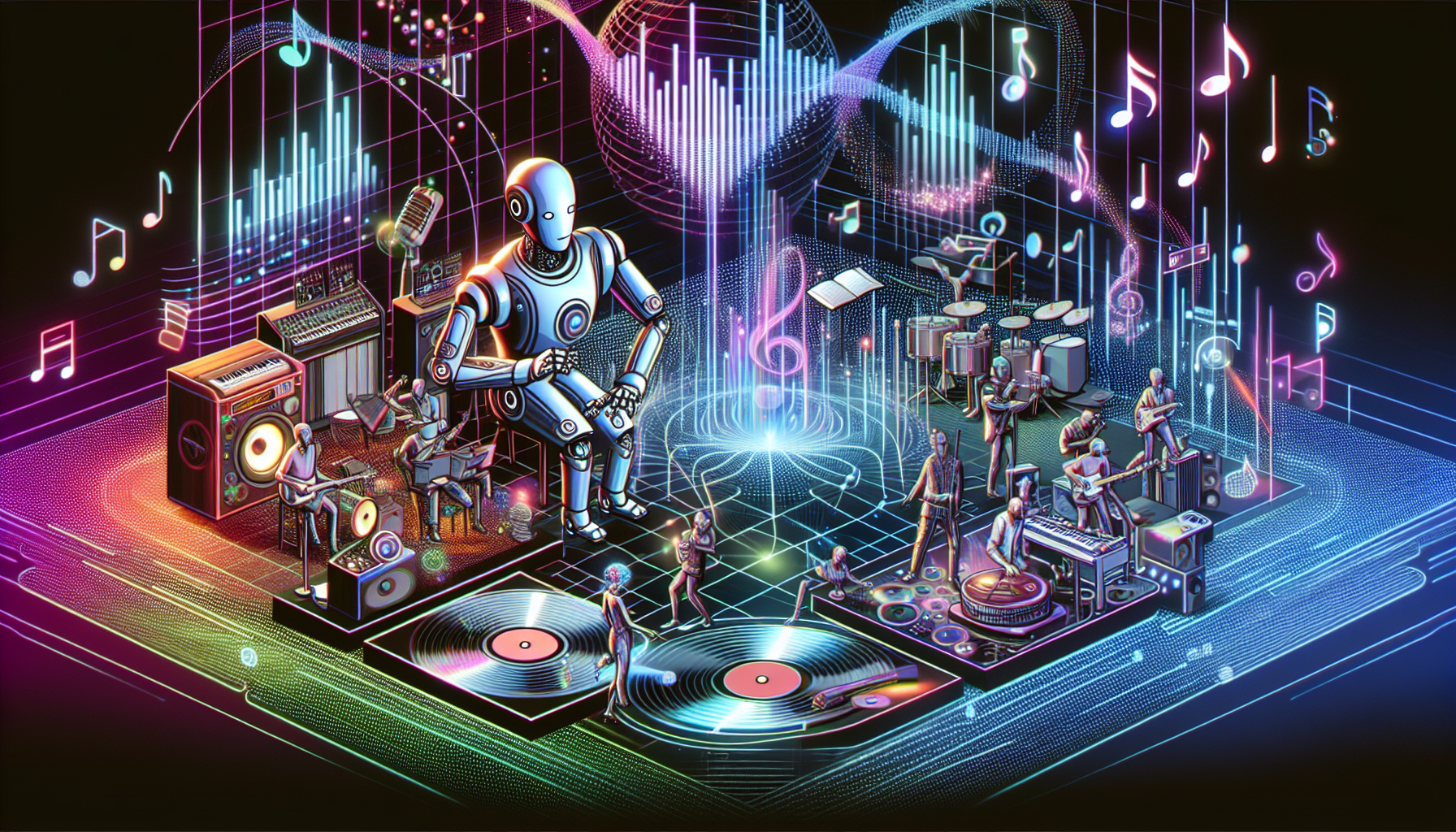
Disruptive Innovation Transforming the Music Industry
For consumers, the benefits are clear. Access to an extensive library of music, personalized recommendations powered by AI, and transparent royalty systems all contribute to an enhanced listening experience. These advancements ensure that music lovers can enjoy their favorite tunes while supporting the artists who create them. In summary, disruptive innovation is not just changing…
-
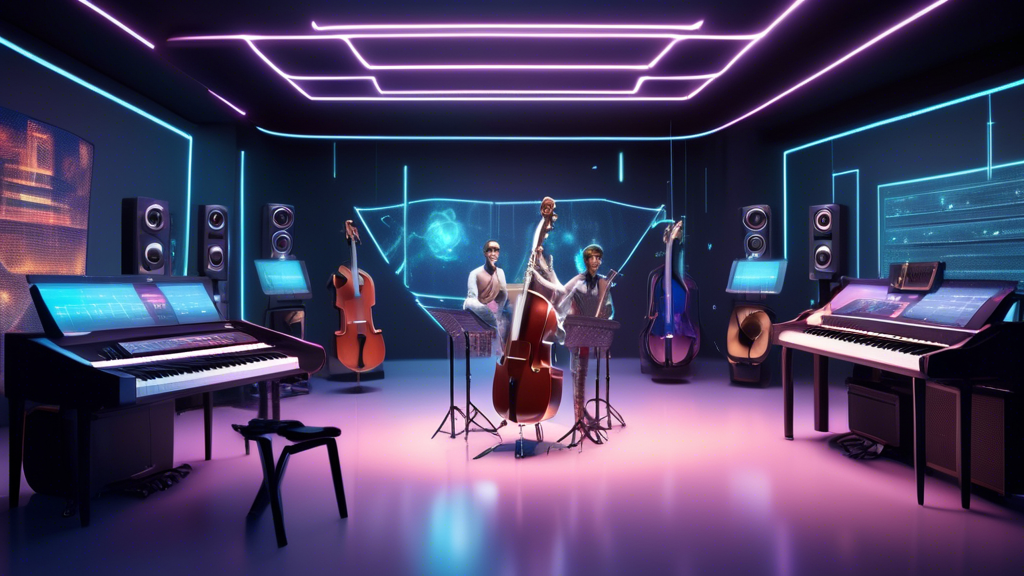
Challenges and Opportunities in AI Music Creation
To fully harness the benefits of AI music creation while mitigating its challenges, a balanced approach is necessary. Musicians, developers, and policymakers need to work together to create ethical guidelines, ensure high standards of quality, and promote collaboration between humans and AI. By doing so, the music industry can innovate while preserving the human touch…
